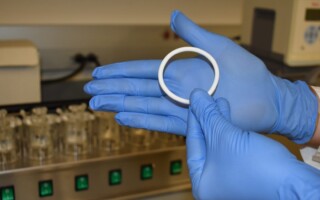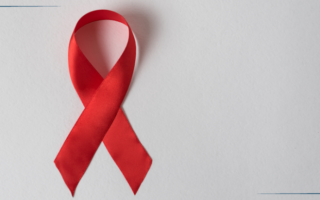We worked alongside two local community-based organizations (CBOs) to provide comprehensive HIV, sexual and reproductive health, and other support services to men who have sex with men (MSM) and transgender women in Lagos. A Council partner, the Centre for Population Health Initiatives (CPHI), operated a community health clinic, serving as the ”hub” facility, while staff members at 15 public health facilities were trained to serve as the model’s ”spokes.” The project sensitized care providers to the needs of marginalized clients and increased rates of HIV diagnosis, treatment and care, and prevention service uptake among MSM and transgender women. It also provided group-based workshops to reduce internalized stigma and promote mental health.
Why it Matters: MSM are disproportionately vulnerable to HIV in Nigeria, with prevalence rates increasing from 13.5in 2007 to 25% in 2020 and with many MSM not knowing their status or how to safely seek HIV services and treatment. Same-gender sexual activity is stigmatized and criminalized in Nigeria, and MSM and transgender persons face stigma and discrimination both inside and outside healthcare settings. The combination of that stigma with the scarcity of HIV services tailored for sexual and gender minority (SGM) populations limits access to HIV and sexual health services.
The Approach:
Building on initial activities with the community that focused on a central hub (also called a ”one-stop shop”) from 2016 to 2018, this program expanded to a ”hub and spokes” care delivery model (2020 to 2022).
What we did:
- With the “hub and spokes” care delivery model, we provided various services which included: Providing HIV testing to 9,245 MSM and 510 transgender women.
- Initiated 978 HIV-negative clients on PrEP and linking 811 (80% of those who tested HIV-positive) to Antiretroviral Therapy (ART) services.
- Completed a stigma-sensitization and discrimination-reduction intervention for 532 care providers across 15 public health facilities.
- Engaged Key Opinion Leaders (KOLs) to promote HIV services across large social networks, facilitating linkage to services at ”spoke” facilities.
- Built relationships with local government, nonprofit, and community leaders through the project’s Community Advisory Committee, increasing the sustainability of HIV and sexual health services for MSM and transgender communities in Lagos.
- Conducted a qualitative sexual healthcare needs assessment with transgender women and transgender men, representatives of civil society organizations working with SGM populations, and healthcare providers. We used the results to advocate for more inclusive services for transgender persons.
- Developed an internalized stigma-reduction/mental health promotion intervention based on affirmative cognitive-behavioral therapy, consisting of group workshops that addressed stigma, identity, shared resilience, coping mechanisms, and social support networks. A randomized controlled trial with 240 participants found very high participant satisfaction, near-universal retention (99%), and marked improvements in internalized stigma related to SGM and HIV, depression, anxiety, resilience, and coping.
The Big Picture:
SGM populations with a high burden of HIV have limited access to patient-centered sexual and reproductive health services and face significant discrimination. A ”hub and spokes” model of care delivery with strong community partnerships was effective for enrolling, testing, and treating many people who previously did not know their HIV status. Additionally, a novel workshop-based intervention targeting internalized stigmas improved mental health outcomes for SGM participants.
Partners:
Funders:




